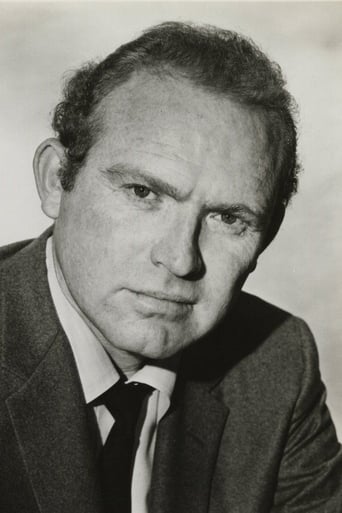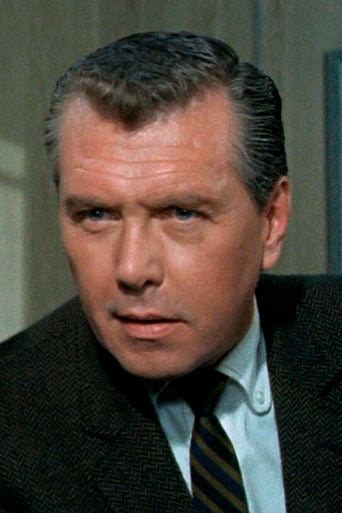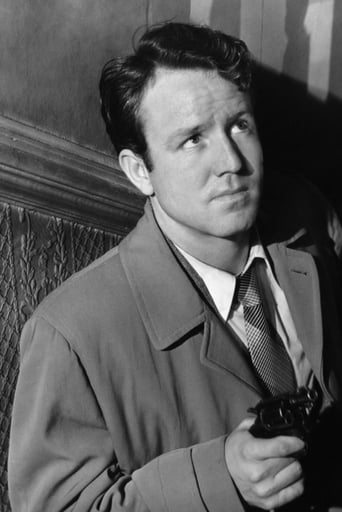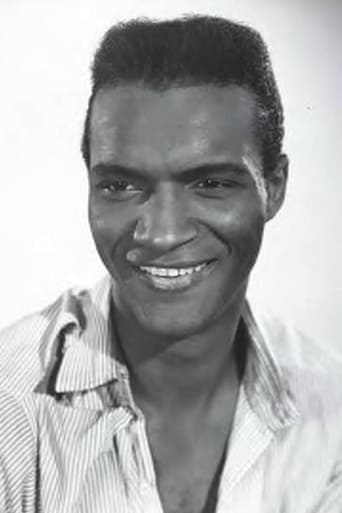Reptileenbu
Did you people see the same film I saw?
FirstWitch
A movie that not only functions as a solid scarefest but a razor-sharp satire.
Kien Navarro
Exactly the movie you think it is, but not the movie you want it to be.
Haven Kaycee
It is encouraging that the film ends so strongly.Otherwise, it wouldn't have been a particularly memorable film
jsk32870
Much has been written here, by those bothering to post a review, about "The Steel Helmet" being 'one of the best ever war films.' I always shudder when plaudits like these are used....how many films can really be 'the best ever?' I was curious to find out about this one.Plot in a nutshell: In the early stages of the Korean War, a rag-tag band of American soldiers tries to get along with each other while searching for, and eventually taking positions in, a Buddhist temple. Yes, that really is the plot. So if you are coming to this film thinking that it's going to be some sort of epic war adventure....think again. 2/3 of "The Steel Helmet" is set in one location, making this feel very much like it was taken from the stage; you will become keenly aware that this was a low-budget affair. From what I've read, it cost just over $100,000 to produce and it shows. Tanks made from plywood tend to have that effect.What differentiates "The Steel Helmet" from most war films, especially war films of the era, is the social commentary director Samuel Fuller chooses to make. There are a few 'firsts' here....besides this being the first Korean War film, it is believed to also be the first film to mention the internment of Japanese-Americans during WWII. There is a frank discussion of the 2nd-class citizen status of African-Americans, with one character stating 'maybe in 50 years we'll be able to ride in the middle of the bus.' We also see an American soldier shooting an unarmed North Korean soldier, a violation of the Geneva Conventions. And the ending tagline "there is no end to this story" - as the soldiers move on to their next objective - is a powerful anti-war statement for sure.All of the above was certainly thought-provoking but, unfortunately, was only a small part of the film as a whole. Excise the 5 minutes or so that are devoted to those elements, and what you are left with is a very pedestrian, low-budget run-of-the-mill war film that sometimes felt to me like it was a TV-movie. The lack of star power probably contributed to that. Many of the 'action' sequences are augmented with stock footage, some taken from WWII, and one in particular actually shows German cannons from Normandy. So the film loses some points/credibility there. Overall it's not bad, but be assured "The Steel Helmet" is more of a 'message film' than anything else. Epic war film it is not. 6/10. Interesting for the social commentary and for being the first Korean War film. Would I watch again (Y/N)? No.
sol-
Rescued by a young South Korean lad, the sole survivor of a massacred platoon huddles with other stranded soldiers at an abandoned Buddhist temple behind enemy lines in this powerful Korean War drama directed by Samuel Fuller. The film is gripping right from the opening close-up shots of lead actor Gene Evans cautiously looking over a bunker while 'the enemy', viewed only from the waste-down, approaches. Fuller does a great job visualising the film throughout though. Especially notable is how low camera angles are initially used to portray the temple as a mystic place of wonder when Evans and his fellow soldiers first arrive -- shots that have an eerie contrast against the daunting high camera angles Fullers later opts for when it is revealed that there is a sniper hiding there. With less dialogue (and none of that haunting voice-over), 'The Steel Helmet' is less philosophical that Fuller's follow-up Korean War pic 'Fixed Bayonets!', however, the sparse dialogue still amply portrays the mood and unease of the soldiers as they contemplate why they are fighting and dissociate dead bodies from those who were only recently alive. Evans is remarkable in the lead role too; initially he seems cynical and hateful towards everyone, but as the film progresses, we see beneath his thick skin. War truly affects even the more hardened men out there. It is thoughtful stuff, and the fact that the majority of the grisly action occurs at a place of worship is a bitter irony if there ever was one. Nothing is sacred in war and there is no sanctuary for those fighting.
grantss
Hardly a classic but a good war drama nonetheless.Set in the Korean War, a grizzled veteran sergeant is the sole survivor of an American patrol that has been ambushed, taken prisoner and massacred. He links up with a medic and a South Korean child and, ultimately, a US infantry squad. The squad set up camp in an abandoned temple that had strategic value as an Observation Post...Decent, but not great. Fairly gritty and realistic but also quite clumsy. Dialogue and sub-plots are a bit lame at times. Performances vary too. No real standouts, though Gene Evans is solid as Sergeant Zack. William Chun is very unconvincing as the Korean kid, though, at least is not irritating (unlike many child characters).
MARIO GAUCI
Fuller's first major work is typically hard-hitting: not that many films have been made about the Korean War (in fact, this was reportedly the very first) but leave it to Fuller to have the last word on the subject – at least, with respect to the actual conflict. One could argue that we had more or less seen this type of jungle warfare in WWII films based in the Pacific, but there's no denying that the writer/director brought unprecedented realism and a moral outlook all his own to a genre he tackled most frequently throughout his career. Furthermore, he sketched soldiers of true flesh-and-blood with their sense of discipline and judgment often clouded by selfishness, prejudice or just plain fear – no wonder that, when the disheveled survivors are belatedly rescued from a brutal onslaught inside a Buddhist temple by their colleagues, one of the latter is induced to remark: "Say, what kind of outfit is this anyway?" For the record, the most familiar cast members are Gene Evans (though he had done a number of bits since debuting in 1947, his name is preceded here by the epithet "introducing" – and he's already fully in character as the tough, cigar-chomping sergeant), Steve Brodie as his disgruntled commanding officer and James Edwards as the black medic; others in the ragtag company are a man studying for priesthood, a youth whose bout as a child with Scarlet Fever has turned him prematurely and completely bald and even a Japanese (played by none other than Richard Loo – the villainous General from THE PURPLE HEART [1944] which, coincidentally, preceded this viewing). An effective addition to these – however unlikely a figure in a Fuller movie – is that of a South Korean child who helps the wounded Evans at the very start (the latter immediately dubs him "Short Round" – Steven Spielberg must have watched this at some point!) and eventually tags along, acting as guide-cum-mascot and even prays to Buddha for their safety. The second half of the picture is confined to the aforementioned temple, where the soldiers first fall victim to and then capture a solitary enemy-in-hiding; in pure Fuller mode, he tries to coerce fellow 'outsiders' Loo and Edwards into defecting, while Evans shoots him down (despite orders by their superiors to secure themselves a P.O.W.) after "Short Round" is pitilessly targeted by the approaching North Koreans.





